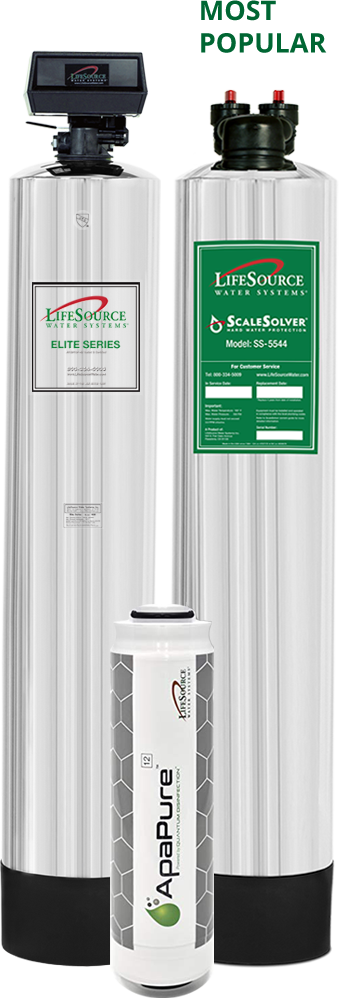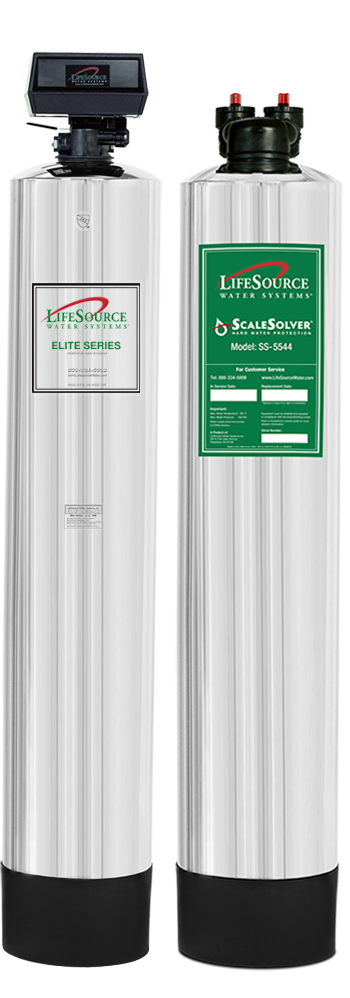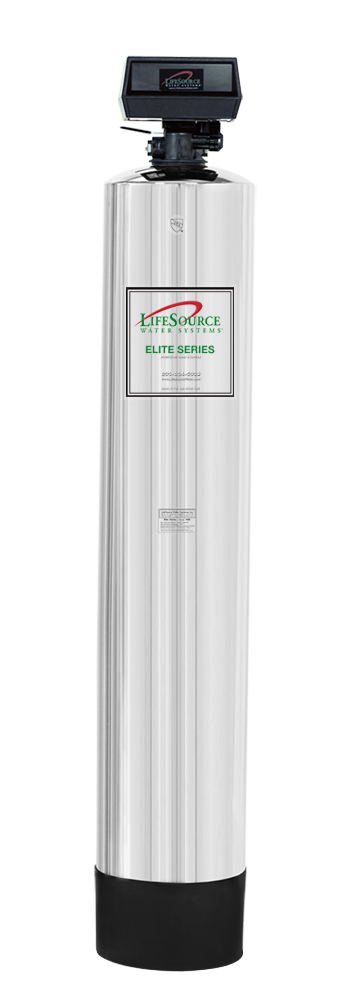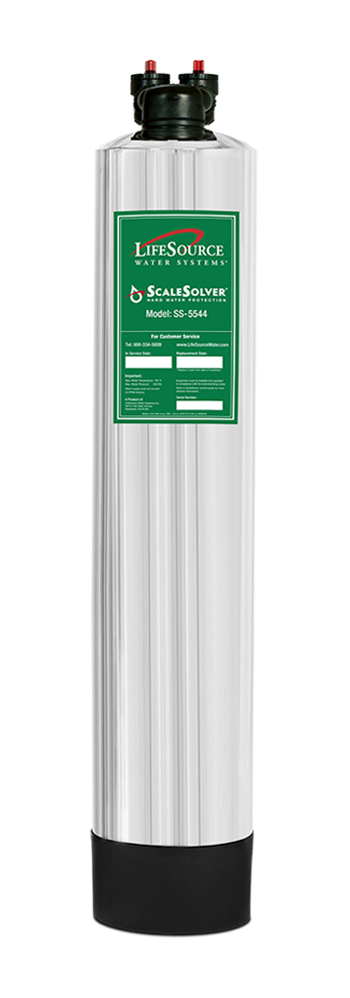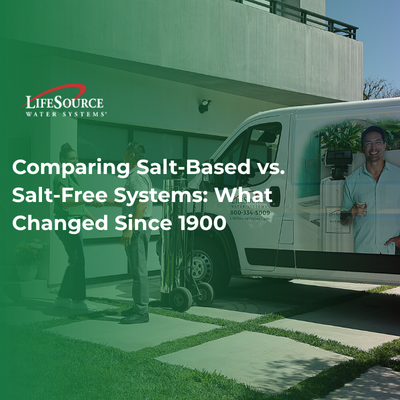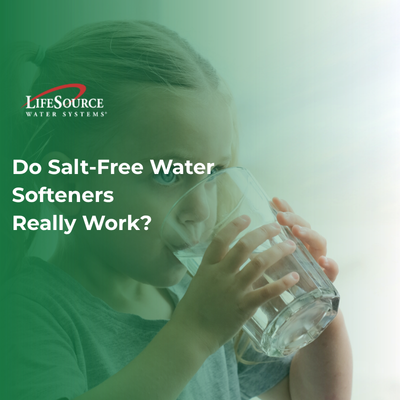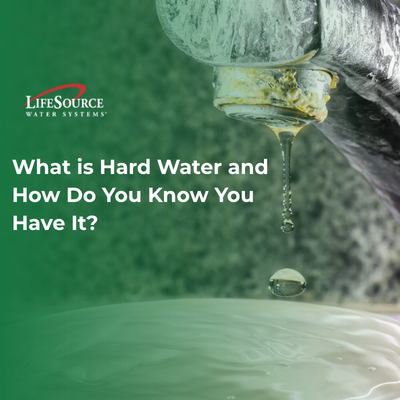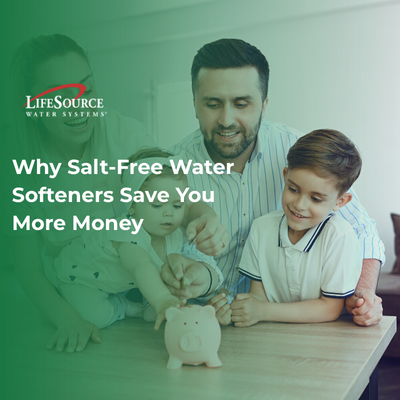
Water Softener Systems Cost: Hidden Fees You Should Know
Many people think that water softeners are harmless water treatment devices but there are hidden monetary, environmental, economic and health costs associated with them.
Water softeners exchange healthy minerals in the water with sodium which has broad impacts at the individual and community level. It’s imperative to understand the true implications of water softeners before investing in a water treatment device that puts high levels of salt into our drinking water. Several cities have even banned salt-based systems which begs the question, what are the cold, hard fact about water softeners?
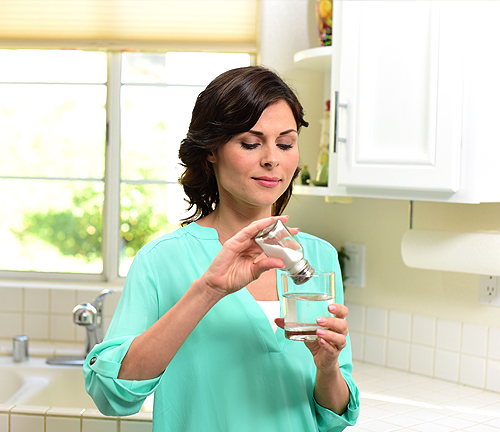
What is a water softener?
A water softener is a salt-based water treatment device that exchanges the healthy minerals in water with sodium in a process called ion exchange. A common misconception is that water softeners are essentially water filters. Water softeners do not remove dirt or chlorine – they remove healthy nutrient minerals and replace them with sodium.
What is hard water?
Hard water is a naturally-occurring water that is high in healthy dissolved minerals such as calcium and magnesium. While these minerals are indisputably healthy for living things, hard minerals are often a nuisance in the home because they accumulate as scale on appliances that use water such as dishwashers and showers. Despite this issue, there are better ways to eliminate hard water problems than using a water softener to remove these healthy minerals from your water altogether.
How exactly does a water softener work?
Water softeners use a process called ion exchange to treat hard water. These systems swap electrically charged particles of salt for the calcium and magnesium naturally present in the water. They use sodium charged plastic beads that cause the hard minerals to group together and stick to the bead while the sodium particle is released into the water. New salt must be added to the brine tank on a regular basis to replace the salt that is used to treat the water.
Hidden fees drive up your water softner cost.
Water softeners have negative impacts at the individual and community level. Owning one is more than a disservice to yourself, it’s a disservice to anyone who uses water in your area – everyone. Learning the true costs of water softeners may help you understand why many cities are transitioning away from these salt-based systems.
Monetary costs
– Prices for water softeners can range from $400 to $6,000 but there are many extraneous costs to owning one. One such cost is maintenance which is an additional $500 to $700 a year to replace the salt in the system. Another cost is the reverse osmosis system you need to filter out the dirt and salt from your softened water. This is an additional $300 to $500.
Environmental costs
– When water softeners regenerate, a brine solution is flushed into the wastewater stream. Every month, hundreds of gallons of salty wastewater are dumped into the local sewage system. Since wastewater treatment plants do not have the capability to remove salt, the water cannot be recycled or reused. This is a significant problem particularly during the drought when we need to recycle and reuse our water more than ever.
Economic costs
– Since water treatment plants cannot treat for salt, communities would need to build desalination plants to make the salty wastewater suitable for agriculture. While this seems like a viable solution, desalination plants are enormously expensive and can cost upwards of $400 million dollars. It is unlikely your community will agree to collectively pay for this solution when not everyone owns a salt-based system.
Health costs
– According to the American Heart Association, excess sodium increases the risks for high blood pressure which can lead to heart disease and strokes. Drinking high-sodium water may put you at risk for a multitude of health problems that can be easily avoided.

Looking for a Salt-Free Alternative?
Concerned about the hidden costs of water softeners? From ongoing maintenance and expensive filters to environmental, economic, and health impacts, it’s important to know the facts before choosing a system. Want a better way to enjoy clean, healthy water for your home?
Contact us today for a free consultation and discover salt-free water solutions!
FAQs
Do water softeners filter chlorine or contaminants?
No. Softeners exchange minerals for sodium; they don’t filter chlorine or many contaminants. Pair with whole-house carbon for taste/odor.
How much sodium can a softener add to my water?
It depends on hardness; people on low-sodium diets should review options with their clinician (see AHA sodium guidance).
Are salt-based water softeners banned in some areas?
Yes—several communities restrict or ban self-regenerating softeners due to chloride in wastewater (e.g., Santa Clarita Valley).
How much water/brine does a softener dump?
Regeneration typically uses tens of gallons and discharges brine; monthly totals often reach hundreds of gallons depending on settings/hardness.
What’s the practical benefit of a salt-free system?
Keeps healthy minerals while reducing scale adhesion—no salt bags, no brine, minimal maintenance; can be paired with carbon filtration.

